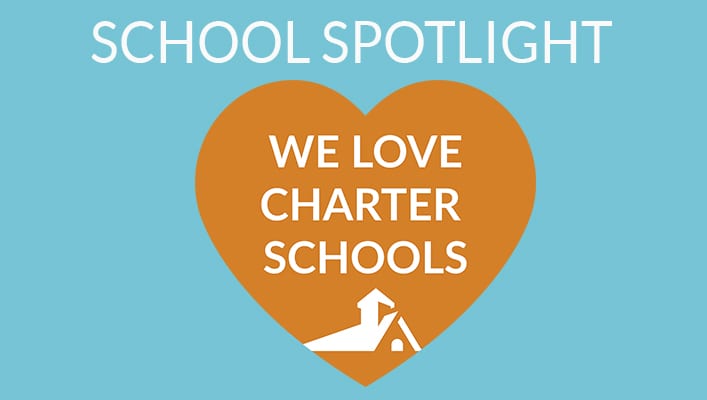Charter schools face unique financial challenges due to irregular state funding cycles and limited access to traditional financing. Receivable sales offer a specialized financing solution that helps schools manage cash flow while maintaining focus on educational excellence.
The Charter School Cash Flow Challenge
Charter schools typically receive the majority of their funding from state aid payments distributed on predetermined schedules that may not align with operational expenses. This timing mismatch creates cash flow challenges that can impact:
Operational Stability:
- Payroll and benefits for faculty and staff
- Facility costs including rent and utilities
- Educational materials and technology needs
- Program implementation and expansion costs
Growth Opportunities:
- Enrollment expansion initiatives
- New program development
- Facility improvements or relocations
- Staff hiring and professional development
What Are Receivable Sales?
Basic Transaction Structure
In a receivable sales transaction, a charter school sells its future state aid payments to a financing company in exchange for immediate funding. This provides schools with working capital before their scheduled state payment dates.

Key Transaction Elements:
- School sells confirmed state aid receivables
- Financing company provides immediate funding
- State payments flow directly to the financing company
- School receives cash flow relief and operational flexibility
How Receivable Sales Work
Transaction Process:
- Charter school identifies upcoming state aid payments
- School and financing company execute purchase agreement
- School receives agreed-upon funding amount
- State distributes payments to financing company on schedule
- Transaction completes when state payment is received
Risk Management: The financing company assumes timing risk if state payments are delayed, protecting schools from state funding disruptions or administrative delays.
Calculating Available Funding
Eligible Receivables
Attendance-Based Entitlements: Primary funding calculated on student enrollment and attendance data, representing the largest component of most charter school budgets.
Federal and State Grants: Confirmed grant awards with established payment schedules, including Title I, IDEA, and other educational program funding.
Special Program Funding: Additional state aid for specific populations or programs, such as English language learners or special education services.
Funding Determination Factors
Amount Calculations: Available funding typically represents a percentage of confirmed receivables, calculated based on the school’s financial profile and the specific receivables being sold.
Timeline Considerations: Funding amounts may vary based on the time between funding and expected state payment dates, with shorter timeframes generally offering more favorable terms.
Benefits of Receivable Sales for Charter Schools
Operational Advantages
Cash Flow Management:
- Eliminates gaps between expenses and state funding receipts
- Provides predictable cash flow for budget planning
- Reduces financial stress during state payment delays
- Enables consistent payroll and vendor payments
Growth Support:
- Funds enrollment expansion initiatives before state funding increases
- Supports facility improvements and program development
- Enables strategic hiring and professional development
- Provides capital for educational technology and materials

Financial Flexibility
Adjustable Funding Levels: Schools can sell receivables based on specific cash flow needs rather than fixed loan amounts, providing customized financing solutions.
Simple Qualification: Receivable sales focus on confirmed state payments rather than complex creditworthiness assessments, making this option accessible to most charter schools.
No Long-Term Debt: Unlike traditional loans, receivable sales don’t create ongoing debt obligations or impact the school’s borrowing capacity for future needs.
Understanding Costs and Terms
Transaction Costs
Program Fees: Fixed administrative costs for processing the receivable sale transaction, typically charged once per transaction regardless of amount.
Discount Rates: The primary cost of selling receivables, calculated as a percentage of the receivable amount and influenced by several factors.
Factors Affecting Pricing
Receivable Type: Different types of state payments carry varying risk profiles, affecting discount rates.
Outstanding Period: The time between funding and expected state payment impacts pricing, with longer periods typically resulting in higher discounts.
School Financial Profile: The charter school’s operational stability and payment history may influence terms and availability.
Strategic Considerations for Charter Schools
When Receivable Sales Make Sense
Ideal Use Cases:
- Managing seasonal cash flow variations
- Funding time-sensitive growth opportunities
- Bridging gaps during state payment delays
- Supporting operational stability during transitions
Timing Considerations:
- Early in fiscal year when state payments are confirmed but not yet received
- During enrollment growth periods requiring immediate investment
- When facing unexpected expenses or opportunities
- As part of comprehensive cash management strategy
Alternatives to Consider
Traditional Financing Options:
- Bank lines of credit for schools with established credit
- Equipment financing for technology and furniture needs
- Facility financing for building purchases or improvements
- Grant funding for specific programs or initiatives
Operational Solutions:
- Improved budget forecasting and cash management
- Diversified revenue streams through fundraising
- Cost management and expense timing optimization
- Building cash reserves during surplus periods
Implementation Best Practices
Due Diligence Process
Financial Assessment:
- Review current cash flow patterns and projections
- Analyze upcoming state payment schedules
- Evaluate total cost compared to alternatives
- Consider impact on overall financial strategy
Documentation Requirements:
- Confirmed state aid calculations and payment schedules
- Current financial statements and cash flow projections
- Board approval for significant financing decisions
- Legal review of transaction documents
Integration with Financial Planning
Cash Management Strategy: Receivable sales work best as part of comprehensive financial planning that includes budget forecasting, expense management, and long-term strategic planning.
Performance Monitoring: Track the impact of receivable sales on cash flow stability, operational flexibility, and educational program funding to assess ongoing value.
Making Informed Financing Decisions
Receivable sales can provide valuable cash flow solutions for charter schools facing timing mismatches between expenses and state funding. Success depends on understanding the total costs, appropriate use cases, and integration with broader financial management strategies.
Schools considering receivable sales should evaluate their specific cash flow needs, compare costs with alternative funding sources, and ensure that any financing decision supports their primary mission of educational excellence.
The key is matching financing tools to operational needs while maintaining focus on sustainable financial management that supports long-term educational success.
